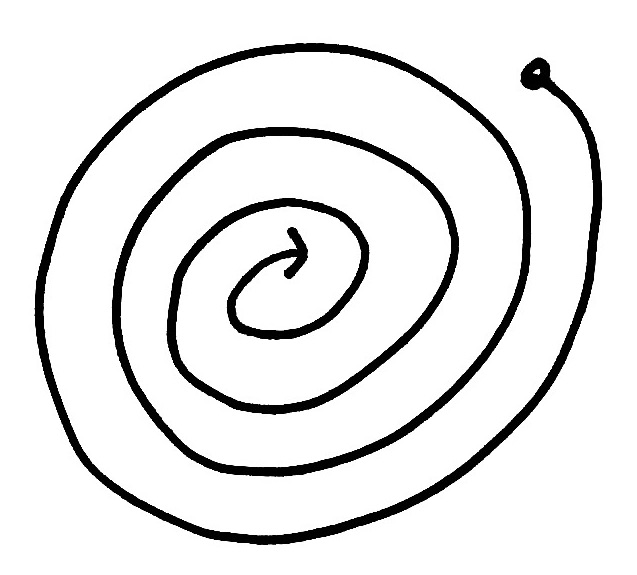
PRIMARY MATERIALS
Downloadable pdf version of “Sunrise” (short story).
Downloadable pdf version of “Africanfuturist 419” (short story).
Link to online version of “Africanfuturist 419” on Clarkesworld (also has an audio file).
Downloadable pdf version of “Rusties” (a collaboration with Wanuri Kahiu) (short story).
Link to online version of “Rusties” on Clarkesworld (also has an audio file).
Downloadable pdf version of “Spider the Artist” (short story).
Link to online version of “Spider the Artist” on Lightspeed.
SECONDARY MATERIALS
Downloadable pdf of Nnedi Okorafor’s famous essay, positing the term “Africanfuturism” as a response to “Afrofuturism,” first written as a blog post in 2019: “Africanfuturism Defined.”
Link to “Africanfuturism Defined” on Okorafor’s website.
OPTIONAL/SUPPLEMENTARY MATERIALS
Link to full list of Okorafor’s books on her website (including YA fiction and comics).
Link to full list of Okorafor’s short stories available online.
READING AND LOOKING QUESTIONS
Downloadable file with questions (also below).
Nnedi Okorafor, “Sunrise,” “Africanfuturist 419,” “Rusties,” “Spider the Artist” (2011-2016)
- How do you as a (most likely) non-Nigerian reader respond to Okorafor’s use of Nigerian names, geographies, languages and linguistic habits, cultural myths, and cultural references in her stories? Do these details serve to alienate you or make reading difficult for you? Or do they work in some other way? (Notice that in “Sunrise,” Okorafor at one point explicitly thematizes Westerners’/Euro-cultures’ response to being confronted with Nigerian names, in an exchange between Eze and the travel writer.)
- How would you describe Okorafor’s use of humor in her stories? Is it central, not-so-central, truly minor, etc.?
- What is a “419”? How does “Africanfuturist 419” play with, and potentially subvert, the main themes and tropes of the genre?
- How does “Rusties” play with, and potentially subvert, such themes as automation, the use of new technologies within the context of urban management/regulation, police violence, the use of new technologies within the context of policing, and resistance to them? What technologies do we already use to manage/regulate/police urban populations?
- Which of these cultural references did you need to look up, or need help understanding, and what did you learn from looking them up/learning about them? Jollof rice, pepper soup, suya, “copkiller” (as a song), matatu, Kazi Bure, Fela Kuti…, Oliver de Coque, highlife (a musical genre) (any others?)
- Describe the relationship between Eme and Udide (or Spider the Artist) in “Spider the Artist.” How does it differ from so many other well-known relationships (whether friendships or romances) between humans and machines in pop culture through the ages (I am thinking of films such as Metropolis, Blade Runner, Her…)?
- Would you say that Okorafor’s work is political or has a political message? Be prepared to share your thoughts and/or examples/evidence with the class.
- Which was your favorite story by Okorafor? Why? Be prepared to share your thoughts with the class.
Responding to Okorafor’s essay, “Africanfuturism Defined”…and to her conversation with Paulson and Aneiho…
9. What seems to be at stake for Okorafor in defining Africanfuturism as a category? What is so important to her about demarcating its difference from Afrofuturism in particular?
10. If you could ask Okorafor a question about her understanding of Africanfuturism, about her work, or about the future of Africanfuturist art and thought, what would it be?
Go the extra mile and know something about the writer and the context in which she is working…
Okorafor describes herself as “Naijamerican.” (She was born and raised in the US but maintains very close ties to Nigeria, where both her parents are from.) In order to understand her work, it is helpful to understand something about Nigeria.
–Nigeria is currently the most populous country in Africa. What is its current population? How does this compare with the population of the United States?
–Historically, the country that today we call Nigeria was colonized by, occupied by, or made a protectorate of what European country?
–Historically, three main ethnic and language groups have dominated both colonial and postcolonial Nigeria (this does not mean that many other ethnic/language groups are not also present there: there are many…but three groups dominate). What are these three main groups?
–To what ethnic group do Okorafor’s parents belong, and how is this connected with the history of their immigration to the US? (Hint: Look up either the Biafran War or the Nigerian Civil War.)
–What is the region of Nigeria known as the Niger River Delta famous for? (What is its most significant export?)
–What is pipeline bunkering?